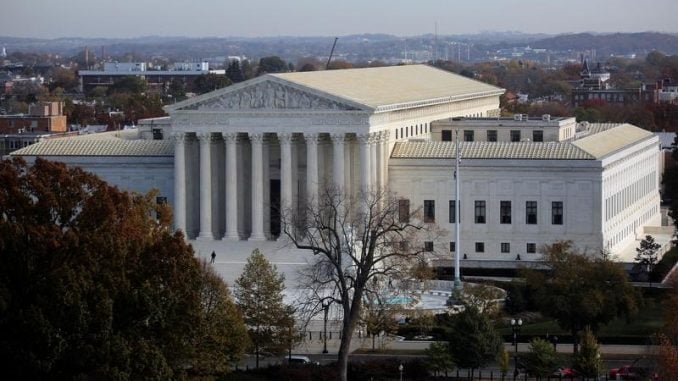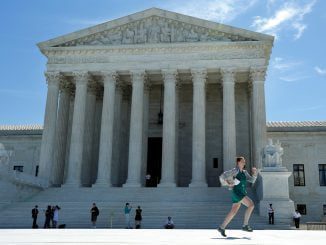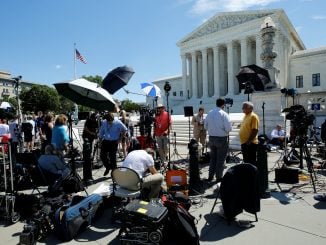
WASHINGTON, D.C. — The U.S. Supreme Court on Monday refused to block a lower court ruling requiring Republican-drawn congressional districts in Pennsylvania to be reworked immediately.
Justice Samuel Alito denied an emergency application filed by Republicans to stop the immediate reworking of the electoral district boundaries, preserving a ruling by the state’s top court that they had unlawfully sought partisan advantage over the Democrats in drawing the maps.
The Jan. 22 Pennsylvania Supreme Court ruling gives Republican legislators until Friday to submit a revised map to Democratic Gov. Tom Wolf, who would have until Feb. 15 to sign off on the changes. If those deadlines pass without an agreement, the state court said it would rewrite the map itself.
In a statement, the state’s top Republican lawmakers, Senate President Pro Tempore Joe Scarnati and House Speaker Mike Turzai, said they still believe the Pennsylvania Supreme Court exceeded its authority and violated the state constitution by stripping the legislature of its power to draw its own voting maps.
“We will do our best to comply with the Pennsylvania Supreme Court’s Jan. 22 order, but may be compelled to pursue further legal action in federal court,” they said.
Democrats hope that a new map potentially could give their candidates a chance to pick up several Republican-held seats in Pennsylvania alone.
Democrats, who hold only five of Pennsylvania’s 18 congressional districts, must capture at least two dozen seats currently held by Republicans in the Nov. 6 congressional midterm elections to wrest control of the U.S. House.
The Pennsylvania fight is one of several across the United States focusing on what is known as partisan gerrymandering, drawing legislative districts to amplify the voting power of one party over another.
In a 5-2 vote along party lines, the Democratic-controlled Pennsylvania court ruled that Republicans crafted the map to deprive Democratic voters of meaningful ballots, violating the state constitution’s guarantees of equal protection and free speech.
Republicans, including members of the state legislature, potential candidates and voters, asked the Supreme Court to put the ruling on hold, saying redrawing the district lines this month would cause chaos ahead of the November House races.
The legal challenge was brought by the League of Women Voters of Pennsylvania and several Democratic voters. The League of Woman Voters of North Carolina is also the group suing over N.C.’s congressional maps.
In an action that could help Republicans keep control of the House, the high court on Jan. 18 put on hold a Jan. 9 federal court ruling that had ordered Republican-draw congressional districts in N.C. be redrawn because of partisan gerrymandering.
The U.S. Supreme Court is also weighing whether to set for the first time a legal standard for partisan gerrymandering in two cases out of Wisconsin and Maryland. The court is expected to rule by the end of June in both cases.



